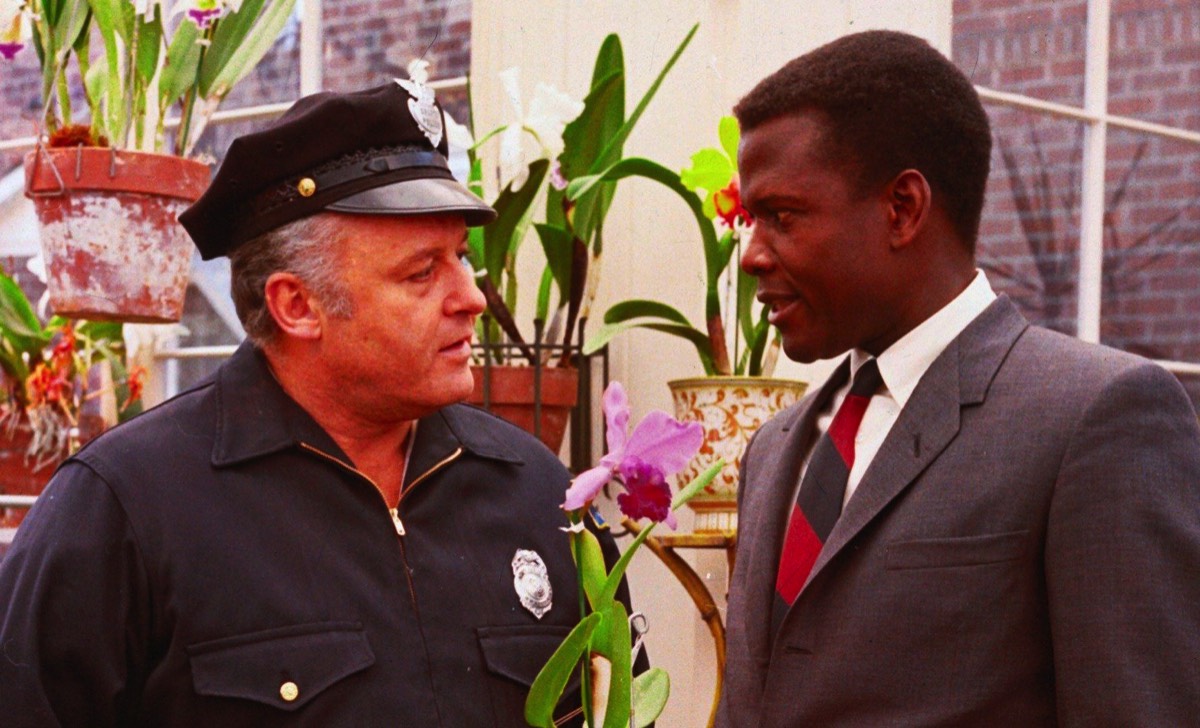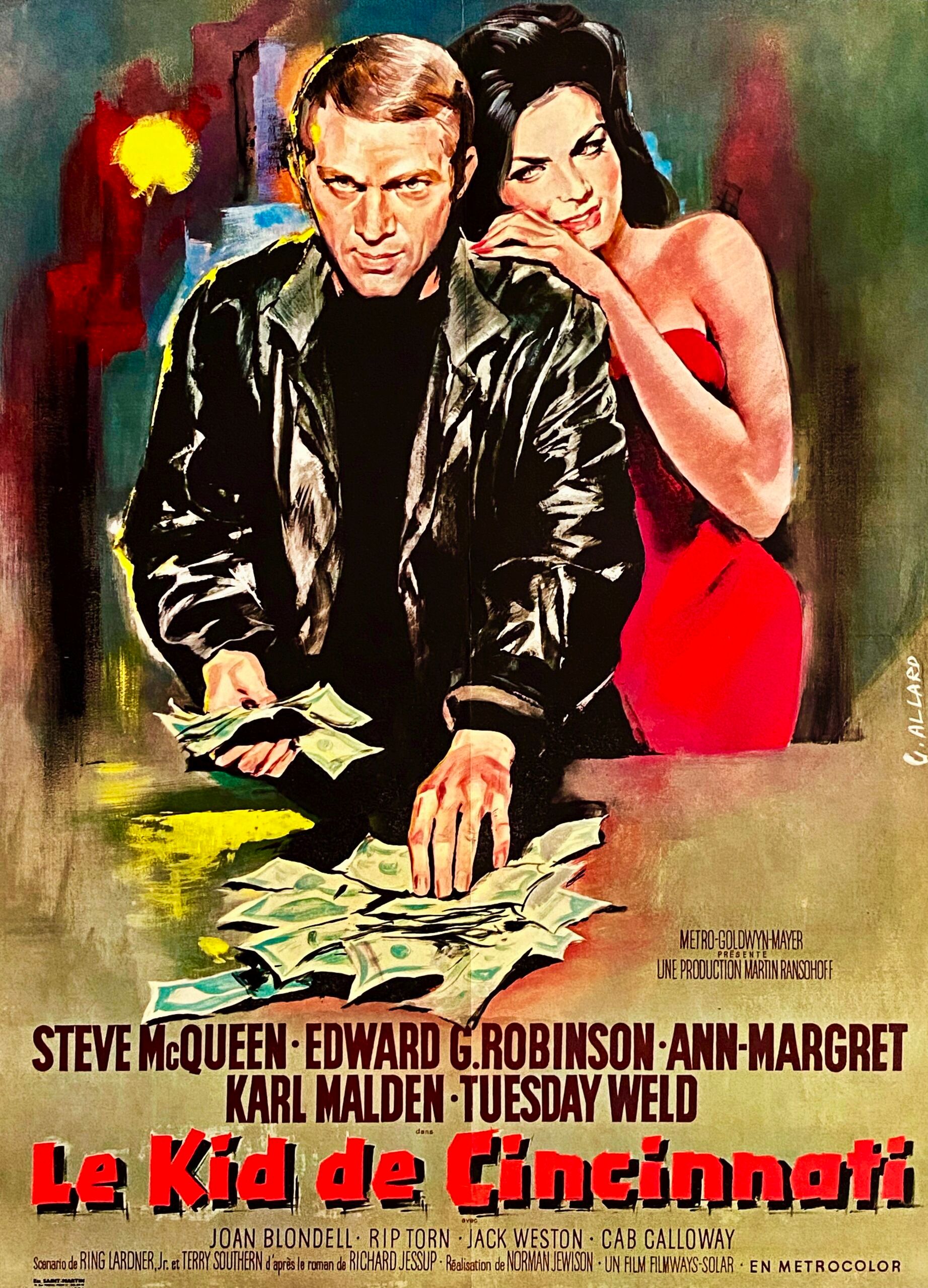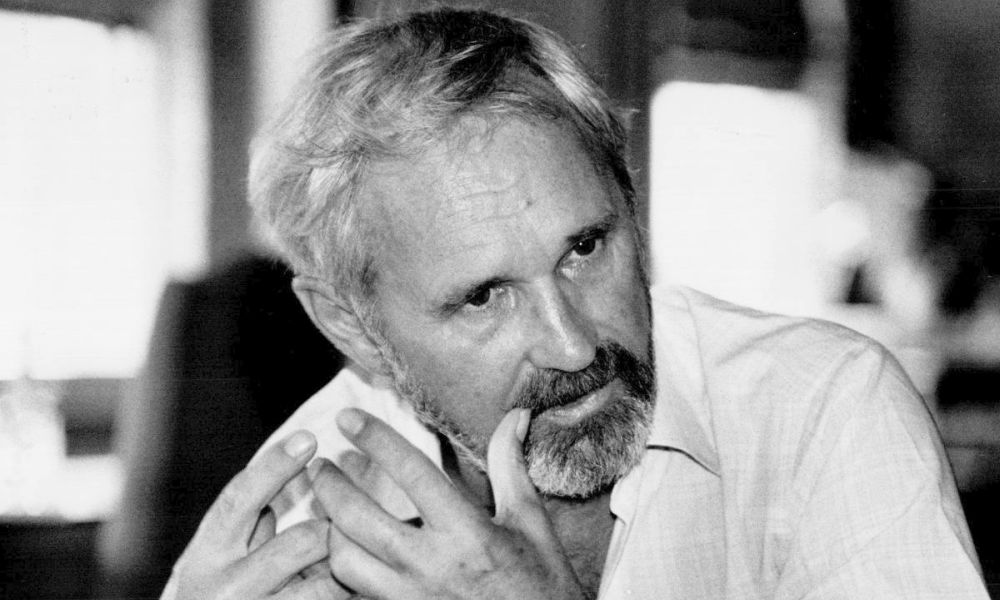"Norman Jewison's two principal virtues are his ability to fill a frame with sharply observed visual detail and a nervous drive and energy that can make the screen pulsate with excitement. Sometimes, however, an excess of these virtues turns them into vices." - Ted Sennett (Great Movie Directors, 1986)
Norman Jewison
Director / Producer
(1926-2024) Born July 21, Toronto, Ontario, Canada
(1926-2024) Born July 21, Toronto, Ontario, Canada
Key Production Countries: USA, Canada
Key Genres: Drama, Romance, Mystery, Comedy, Message Movie, Romantic Comedy, Religious Drama, Period Film, Musical, Satire, Crime, Courtroom Drama
Key Collaborators: Patrick Palmer (Producer), Antony Gibbs (Editor), Hal Ashby (Editor), Robert Boyle (Production Designer), Steve McQueen (Leading Actor), Doris Day (Leading Actress), Haskell Wexler (Cinematographer), Douglas Slocombe (Cinematographer), Denzel Washington (Leading Character Actor), Edward Andrews (Leading Character Actor), Rod Steiger (Leading Character Actor), Jack Weston (Leading Character Actor)
Key Genres: Drama, Romance, Mystery, Comedy, Message Movie, Romantic Comedy, Religious Drama, Period Film, Musical, Satire, Crime, Courtroom Drama
Key Collaborators: Patrick Palmer (Producer), Antony Gibbs (Editor), Hal Ashby (Editor), Robert Boyle (Production Designer), Steve McQueen (Leading Actor), Doris Day (Leading Actress), Haskell Wexler (Cinematographer), Douglas Slocombe (Cinematographer), Denzel Washington (Leading Character Actor), Edward Andrews (Leading Character Actor), Rod Steiger (Leading Character Actor), Jack Weston (Leading Character Actor)
"He served in the Canadian Navy during World War II, studied at the University of Toronto and worked extensively in television before making his directorial debut with Forty Pounds of Trouble (1962). Initially a director of breezy comedies, he has tackled a wide variety of genres and shown a particular fondness for stories highlighting social issues and racial tensions." - Chambers Film Factfinder, 2006
"A consummate craftsman known for eliciting fine performances from his casts, director Norman Jewison addressed important social and political issues throughout career, often making controversial or complicated subjects accessible to mainstream audiences. Jewison transitioned from directing variety shows on television to feature films in the early 1960s, helming several forgettable studio-driven comedies. He emerged later in the decade with the gritty gambler drama The Cincinnati Kid (1965) and the Cold War farce The Russians Are Coming, The Russians Are Coming (1966). But it was his simple, but superbly acted small-town crime drama, In the Heat of the Night (1967), that etched Jewison's name in stone." - Turner Classic Movies

In the Heat of the Night (1967)
"His oeuvre in sum presents a panoramic view of 20th-century America. One of his strengths is his ability to bring a setting alive on the screen, making special use of a variety of locations spread geographically around the US (and occasionally abroad) - his pictures have ranged from 1910 Chicago to Cleveland during the late 30s, from 50s Washington to the South in the 40s; while his portrait of America has been kept up-to-date by various productions set in contemporary LA, Boston, Baltimore, etc." - Joel W. Finler (The Movie Directors Story, 1985)
"In American mainstream movie history, only a handful of producer-directors can lay claim to an extraordinarily immense, eclectic, and successful body of work. There is no doubt that Norman Jewison is a prominent member of that club. Tackling just about every genre in collaboration with some of the finest cinematographers, actors, and artists that cinema has to offer, Jewison remains one of the most acclaimed and admired men in the movie business." - Film at Lincoln Center, 2011
"Jewison was better suited to the modest scale of earlier efforts like Send Me No Flowers and The Cincinnati Kid, though even here there were signs of a tendency to inflate his material. In the Heat of the Night was a flashily coarse production that ill deserved its reputation, while the later musicals, if rich in detail, were top-heavy affairs. F.I.S.T., however, was a surprisingly radical American union film." - The Illustrated Who's Who of the Cinema, 1983
"Many American film critics are completely ignorant about film technique. They go to a movie and review the story. They don't understand style. You would never confuse the plot of a novel with the style it's written in, but a lot of critics make that mistake with movies. If the director uses a quick pace and moves around in time, a critic is likely to say the story was confused. The story has nothing to do with it." - Norman Jewison (Roger Ebert interview, 1968)
Selected Filmography
{{row.titlelong}}
Norman Jewison / Favourite Films
Bicycle Thieves (1948) Vittorio De Sica, The Bridge on the River Kwai (1957) David Lean, Casablanca (1942) Michael Curtiz, Citizen Kane (1941) Orson Welles, City Lights (1931) Charles Chaplin, 8½ (1963) Federico Fellini, The 400 Blows (1959) François Truffaut, Gunga Din (1939) George Stevens, Rashomon (1950) Akira Kurosawa, The Wizard of Oz (1939) Victor Fleming.
Source: Sight & Sound (2002)
Bicycle Thieves (1948) Vittorio De Sica, The Bridge on the River Kwai (1957) David Lean, Casablanca (1942) Michael Curtiz, Citizen Kane (1941) Orson Welles, City Lights (1931) Charles Chaplin, 8½ (1963) Federico Fellini, The 400 Blows (1959) François Truffaut, Gunga Din (1939) George Stevens, Rashomon (1950) Akira Kurosawa, The Wizard of Oz (1939) Victor Fleming.
Source: Sight & Sound (2002)
Norman Jewison / Fan Club
Frank Ochieng, Michał Oleszczyk, Roger Ebert, Anna Biller, George Clooney, Frank Darabont, Alain Charlot.
Frank Ochieng, Michał Oleszczyk, Roger Ebert, Anna Biller, George Clooney, Frank Darabont, Alain Charlot.
"Fan Club"
These film critics/filmmakers have, on multiple occasions, selected this director’s work within film ballots/lists that they have submitted.
These film critics/filmmakers have, on multiple occasions, selected this director’s work within film ballots/lists that they have submitted.


